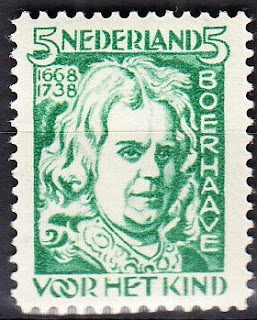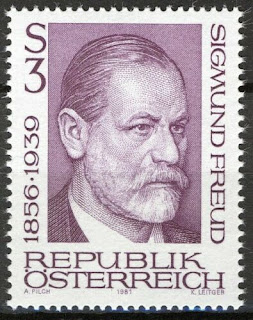Here are some events that happened on September 23rd. It could be an event or a person that died or was born on that day
1738 Died: Herman Boerhaave, Dutch botanist and physician (b. 1668)
Herman Boerhaave (31 December 1668 – 23 September 1738) was a Dutch botanist, chemist, Christian humanist, and physician of European fame. He is regarded as the founder of clinical teaching and of the modern academic hospital and is sometimes referred to as "the father of physiology," along with Venetian physician Santorio Santorio (1561–1636). Boerhaave introduced the quantitative approach into medicine, along with his pupil Albrecht von Haller (1708–1777) and is best known for demonstrating the relation of symptoms to lesions. He was the first to isolate the chemical urea from urine. He was the first physician to put thermometer measurements to clinical practice. His motto was Simplex sigillum veri: 'Simplicity is the sign of the truth'. He is often hailed as the "Dutch Hippocrates".
Dutch stamp depicting Herman Boerhaave
1913 – Roland Garros of France becomes the first to fly in an airplane across the Mediterranean (from St. Raphael in France to Bizerte, Tunisia).
Eugène Adrien Roland Georges Garros (6 October 1888 – 5 October 1918) was a French pioneering aviator and fighter pilot during World War I and early days of aviation. In 1928, the Roland Garros tennis stadium was named in his memory; the French Open tennis tournament takes the name of Roland-Garros from the stadium in which it is held.
On 23 September 1913 Roland Garros gained fame for making the first non-stop flight across the Mediterranean Sea from Fréjus-Saint Raphaël in the south of France to Bizerte in Tunisia in a Morane-Saulnier G. The flight commenced at 5:47 am and lasted nearly eight hours during which Garros had to solve two engine malfunctions. The following year, Garros joined the French army at the outbreak of World War I
Stamps from France and Monaco depicting Roland Garros and or his plane or the stadium named after him




1939 Died: Sigmund Freud, Austrian neurologist and psychiatrist (b. 1856)
Sigmund Freud (born Sigismund Schlomo Freud; 6 May 1856 – 23 September 1939) was an Austrian neurologist and the founder of psychoanalysis, a clinical method for treating psychopathology through dialogue between a patient and a psychoanalyst.
Freud was born to Galician Jewish parents in the Moravian town of Freiberg, in the Austrian Empire. He qualified as a doctor of medicine in 1881 at the University of Vienna. Upon completing his habilitation in 1885, he was appointed a docent in neuropathology and became an affiliated professor in 1902. Freud lived and worked in Vienna, having set up his clinical practice there in 1886. In 1938, Freud left Austria to escape Nazi persecution. He died in exile in the United Kingdom in 1939.
In founding psychoanalysis, Freud developed therapeutic techniques such as the use of free association and discovered transference, establishing its central role in the analytic process. Freud's redefinition of sexuality to include its infantile forms led him to formulate the Oedipus complex as the central tenet of psychoanalytical theory. His analysis of dreams as wish-fulfillments provided him with models for the clinical analysis of symptom formation and the underlying mechanisms of repression. On this basis Freud elaborated his theory of the unconscious and went on to develop a model of psychic structure comprising id, ego and super-ego. Freud postulated the existence of libido, a sexualised energy with which mental processes and structures are invested and which generates erotic attachments, and a death drive, the source of compulsive repetition, hate, aggression and neurotic guilt. In his later works, Freud developed a wide-ranging interpretation and critique of religion and culture.
Though in overall decline as a diagnostic and clinical practice, psychoanalysis remains influential within psychology, psychiatry, and psychotherapy, and across the humanities. It thus continues to generate extensive and highly contested debate with regard to its therapeutic efficacy, its scientific status, and whether it advances or is detrimental to the feminist cause. Nonetheless, Freud's work has suffused contemporary Western thought and popular culture. W. H. Auden's 1940 poetic tribute to Freud describes him as having created "a whole climate of opinion / under whom we conduct our different lives."
Austrian Stamp depicting Sigmund Freud






No comments:
Post a Comment